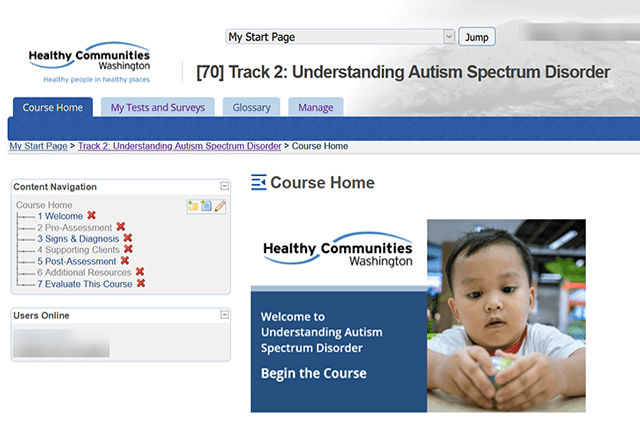Training your employees is always a good idea. On one hand, it attracts and retains top talent in your organization. On the other hand, it keeps you competitive and improves your services and operations. Providing training also gives your workers a solid footing and equals the playing field.
A comprehensive training plan starts with foundational training. We often see health agencies skip this basic training and opt to dive right into advanced topics. But doing so can harm your workforce. First, this approach affects your hiring process, as you’ll likely focus on candidates with previous field experience. On paper, this looks like a strength, but it may limit your talent pool and keep you away from potentially great performers who simply haven’t had access to training. Second, it assumes that everyone’s training and background are similar enough that they’re ready to move to the next phase. But that may not be accurate.
This is where core competency training comes in.
Competence vs. Competency
Many people use these terms interchangeably. But there is a significant difference between competence and competency.
Competence refers to someone’s ability to do something. You’d say that your coworker is a ‘competent’ writer or your spouse is a ‘competent’ driver. Are they going to win a race? Maybe. Nevertheless, they can drive.
Conversely, competency is the proficiency someone has to perform something. Following the same examples, William Shakespeare was not merely competent in writing — nor is Lewis Hamilton a competent driver. They excel. Competency is an above-average ability or skill.
We use the term core competency in training to refer to the essential skills your workers need to perform their roles. In a healthcare setting, core competencies may include areas like health literacy, outreach and relationship-building skills. For managers or directors, strategic planning is a core competency.
Understanding Soft and Hard Skills
Core competencies in healthcare settings include a mix of hard and soft skills because healthcare is about human relationships. So it’s easy for the lines to get murky.
To start, a hard skill is technical. They’re objective, quantifiable, and demonstrable. Another characteristic of hard skills is that people can learn them. Coding, documentation skills, and data analysis are examples of hard skills.
On the contrary, soft skills are nuanced. They’re a combination of the traits and features that make someone who they are. Soft skills are not as clear-cut as hard skills. You can’t quantify someone’s communication or flexibility. Still, individuals can learn and improve.
Active listening, conflict resolution, emotional resilience, ethical boundaries, and cultural competence are examples of soft skills. And as you see, a combination of hard and soft skills is essential for building a positive working environment and providing good care to patients.
Core Competency Training Benefits
There are many benefits of offering core competency training to your staff. To start, professional development is a compelling incentive. So you’ll attract higher-quality prospects to any role.
Second, offering core competency training creates an even starting point for your staff. Even if your employees have previous experience or training, you don’t know what that was like. So it pays to ensure they have the skills you need by offering them yourself.
Third, having training customized to your organization allows you to create standard processes, which streamlines onboarding and improves outcomes.
Fourth, it may seem that investing in training is expensive. But professional development boosts retention. It increases job satisfaction and enables your staff to take on more responsibilities. All in all, training is a great motivator. This means that you’ll be saving money in the long run because hiring new employees is costly.
And fifth, ongoing training keeps your agency competitive and relevant. Especially now that industries advance quickly, you want highly skilled employees to meet the market’s demands.
Train Your Team With Talance
Talance, Inc. is a leading learning management system administrator specializing in working with health agencies like yours that need comprehensive yet flexible training. We develop online, on-demand courses that fit your organization’s unique needs and work closely with you to ensure your employees’ success.
Book a consultation now to learn more about your online learning options with Talance.



